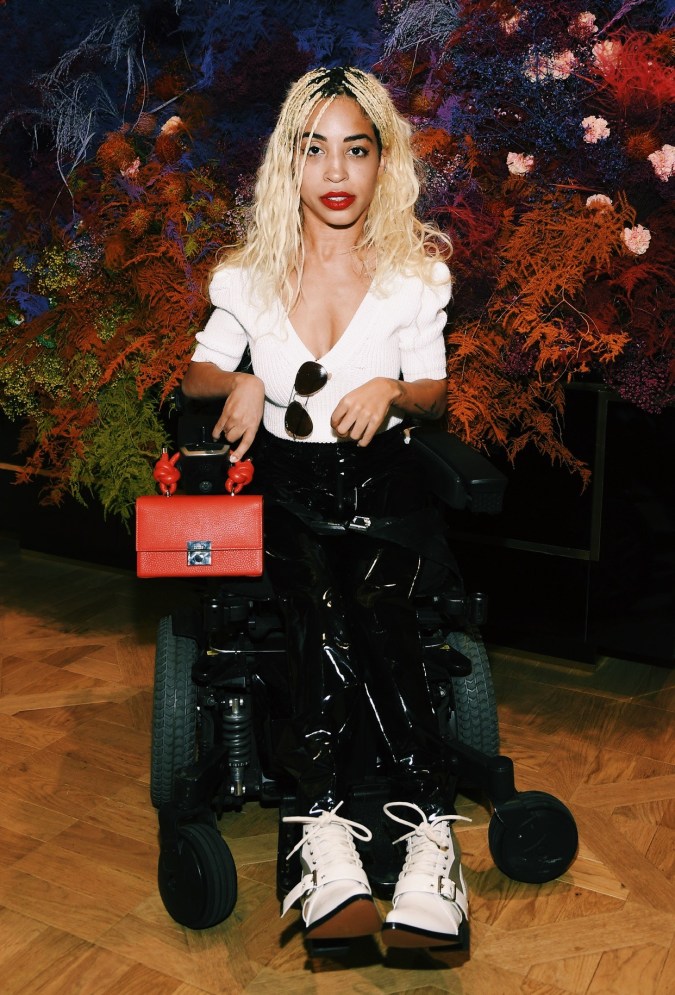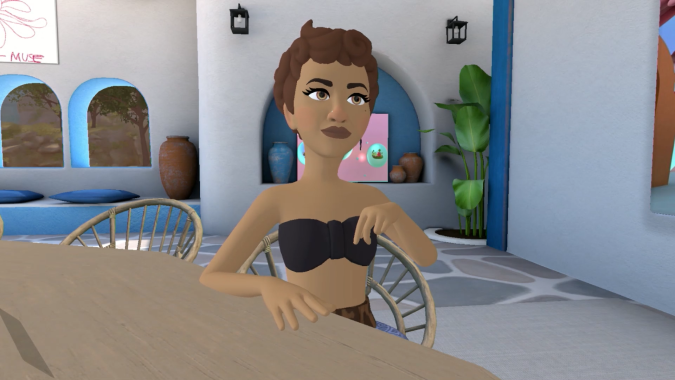Jillian Mercado wants to be seen. And not by the preconceived notions of who she is or what the Latine community has stereotyped the disabled community as. She wants them to see her as a creator, activist, model, actor, and anything she sets her mind to. And the only way to do that is to actively work towards humanizing the disabled community by living her life as authentically as possible.
Remezcla got a chance to interview Mercado about her continued efforts to humanize the disabled community, what parts of her identity she brings into every project she takes on, and how technology has helped change the way that the disabled community connects with the world while helping to change the dynamic about who has a place at the table.
“Everything that I’ve stepped into or got myself involved with from the beginning was with the mission to just humanize my community,” Mercado explained at the beginning of our interview. The Dominican model, actress, and advocate for greater representation in any industry she enters does this “to let the outside community know that we’re here and that we exist and that we’re part of society” She has a place at the table. The disabled community has a place at the table.
That’s why it’s really important to her to bring the parts of herself that make her Jillian Mercado into every show she books or role she takes on. And a huge part of who she is is rooted in her heritage as a Dominican. “The Latin culture is just so colorful and so full of music and the arts and the language. And just like mannerisms, the collective, and the spices, we bring into every single project. It’s so enrichening. So it’s so important to me, like if you don’t, if I don’t allow those different aspects of my culture to be super present in a project, then I’m not allowing myself to be authentically me, you know?”


By bringing parts of her culture into her work, Mercado is ensuring that she is never forgotten, her people are never forgotten, and her community is never forgotten. They are a part of her that travels with her every step of the way. And technology is something that goes hand-in-hand with Mercado in her mission to remind people that she has a place at the table. The Covid-19 pandemic in particular opened up more conversations on how we connect and put a spotlight on conversations of accessibility that the disabled community has been having for ages.
As Mercado explained, “Beyond Covid, we’ve had problems with spaces where they’re like, “We can’t offer you this opportunity or this job because you’re not physically there. You’re not physically able to be at an office or, you know, commute to a place or travel to a situation.” And it woke up people to how ableist our society is and how technology human0izes communities while giving them the tools to live the authentic lives they want to and not the stereotypes handed down to them.
Keeping all of this in mind, Mercado was curious and excited about how technologies like VR systems work at bringing forth a better balance of equity. This interview, in fact, was done in VR through an Oculus by Meta. In an effort to explore the ways that they could explore the intersectionality of the Latine community and the disabled community, she’s taken time to work with them and support projects like the fifth installment of the Metaverse Culture Series: Tercera Cultura; a mixed reality installation that can be experienced in VR in Meta’s Horizon Worlds.

“We need more people to hear us and humanize us and to say that our thoughts are important and that we are part of society,” Mercado said about the core reason why she decided to take part in the docushort accompanying Tercera Cultura. “The beautiful thing about this situation is that we’re able to open that accessibility to people who may not have the privilege or the advantage to travel to another country.” And as this becomes the norm for more people, the way that we can push the boundaries of accessibility, the more we can ask for and feel like part of the communities that have long ostracized the disabled community.

“For myself, especially in the disability community with Latinos, it’s always been a struggle for me personally growing up and having like my aunts and uncles understand that we are part of society as well,” Mercado explained, recounting the multiple telenovelas that she watched growing up where people like her were the butt of the joke. And if she can do anything to change that mindset through the doors that she’s opening, she’s going to do it. “I want to bring my communities into the Latin culture. Cuz there are so many disabled Latinos out there that unfortunately have had that traditional upbringing with parents that don’t humanize them.”
Through her modeling, acting, and work like in Tercera Cultura, Mercado wants to change the future, shift privilege, open doors, be honest about limitations, and open up a different universe that helps elevate disabled voices. “It’s kind of humbling and a beautiful moment to be alive right now and experience that there are people who are giving opportunities and making space for my community and hearing us out. But not even only hearing us out but actually acting on it. Because we can have 10,000 conversations, but if nobody’s doing anything about it, where are we going? Nowhere.”
And Jillian Mercado will continue fighting for her community to give the next disabled Dominican girl like her the future they deserve. One of freedom, accessibility, and where she is seen for who she chooses to be.
Watch Jillian Mercado in the Metaverse Culture Series: Tercera Cultura docushort below.




